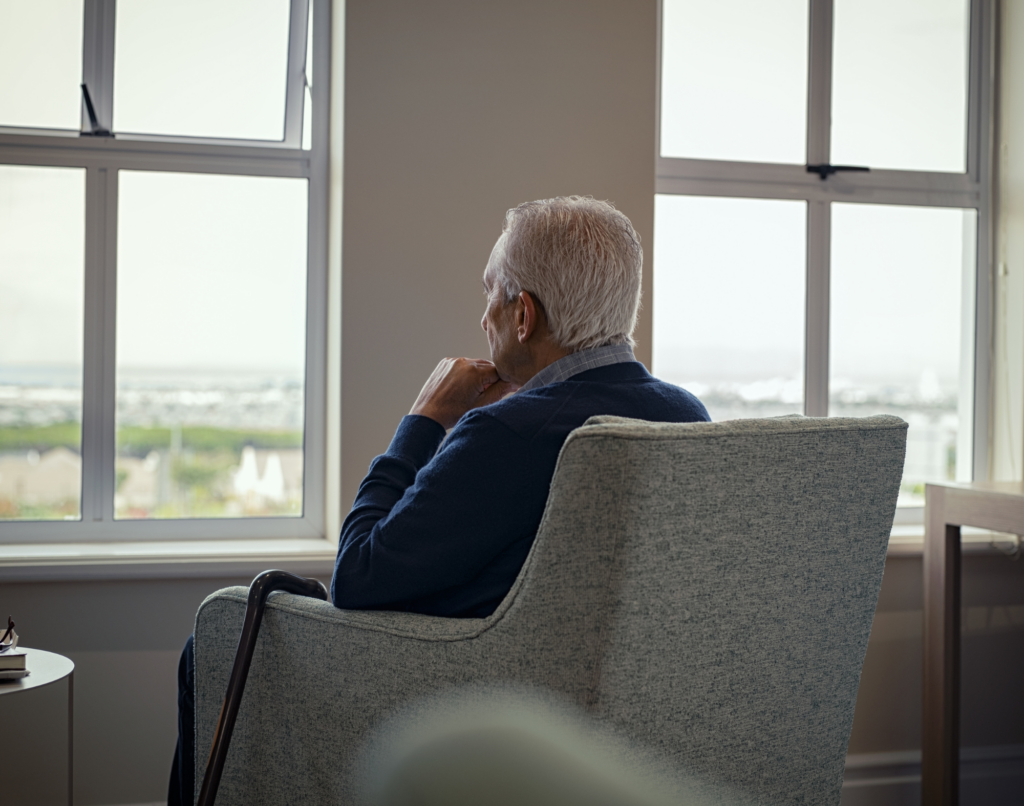Social isolation is a risk factor for poor mental and physical well-being. The health impacts of loneliness include things like heart disease, depression, and cognitive decline. This is particularly a problem for Senior Citizens who live alone due to decreased social circles and changes in family dynamics.
How Many Senior Citizens Live Alone?
According to the Administration on Aging, 14.7 million (27%) of Americans over age 65 live alone. The number increases to 42% for people over 75. Social isolation leaves Senior Citizens vulnerable to the adverse effects of loneliness.
Isolation vs. Loneliness
Loneliness isn’t necessarily caused by being isolated. Many people live alone but don’t report feeling lonely. Whereas, others can experience loneliness while surrounded by family and friends. Loneliness stems from a lack of meaningful relationships. For example, people who find themselves suddenly alone due to death or separation from family and friends are at a higher risk of experiencing loneliness. On the other hand, people who engage in meaningful activities that give them a sense of purpose are less likely to feel alone.
Impact of Loneliness on Cognition Function
Lonely adults have a greater risk of cognitive decline. Loneliness impacts things like IQ, processing, and recall. Plus, the more lonely a person feels, the worse the mental impairment gets. When Senior Citizens are alone, they don’t get mental stimulation from engaging with others. That might explain why social isolation and loneliness are associated with an increased risk of Dementia and Alzheimer’s Disease.
Impact of Loneliness on Mental Health
Feelings of loneliness correlate with negative emotions, alcoholism, depression, stress, and suicide. Lonely people report feeling less happy and are more likely to be depressed. They are often more pessimistic than non-lonely peers. Loneliness is also a contributing factor in alcohol abuse due to a lack of social support and community pressure. Moreover, loneliness is a source of chronic stress, which leads to many different physiological and psychological problems.
Impact of Loneliness on Physical Health
The chronic stress caused by loneliness leads to inflammatory diseases, including diabetes and autoimmune disorders. Loneliness also increases the risk of heart disease, high blood pressure, and infection.
The Impact of Loneliness on Senior Citizens
The impact of loneliness on Senior Citizens has severe consequences for the physical and mental health of older adults. However, you can combat loneliness by providing Senior Citizens with social support and developing opportunities for social interactions. Sometimes seeing a familiar face is enough to lift the cloud of isolation. For example, daily visits from a Certified Homemaker-Home Health Aide (CHHHA) can provide a chance for older adults to interact with others in a meaningful way.
At Anita’s Angels, Inc., we are happy to send our skilled CHHHAs to spend time with your Senior loved one. We are Families Helping Families. Schedule a free in-home consultation today—call 908-788-9390.





